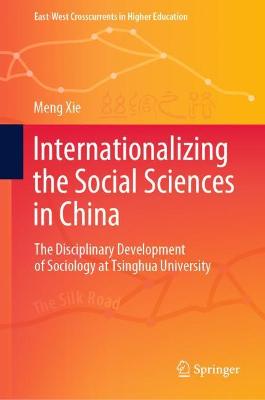East-West Crosscurrents in Higher Education
1 total work
The current social reality and changing global forces and spaces are inspiring the rethinking, refining, and re-empowering of the world social sciences to broach the frontiers of human knowledge, enhance mutual understanding across cultures and civilizations, and shape a better world. Taking Tsinghua University's sociology as a case, this book concentrates on how internationalization shapes disciplinary development in a global context of asymmetrical academic relations. This inquiry is set amidst China's dramatic economic, social, political, and cultural transformations, as well as the institutional reforms in this Chinese flagship university. This book seeks to probe how Chinese and Western knowledge, institutions, and cultures are integrated in the ongoing process of internationalization and concentrates on the disciplinary evolution of Tsinghua's sociology-intellectually, institutionally, and culturally-drawing on top-down higher education policy and bottom-up perceptions and experiences of Tsinghua's social scientists. This book highlights that higher education internationalization is an evolving process whose advanced phase would require Chinese social scientists to bring China to the world. It is time for Tsinghua University to reassess the long-term impact of internationalization on its academic disciplines and provide sufficient support for the development of the social sciences.This book will attract academics, practitioners, and postgraduate students interested in higher education internationalization, international academic relations, global constellation and distribution of academic power, academic knowledge production, and the development and intellectual influences of the Chinese social sciences.
